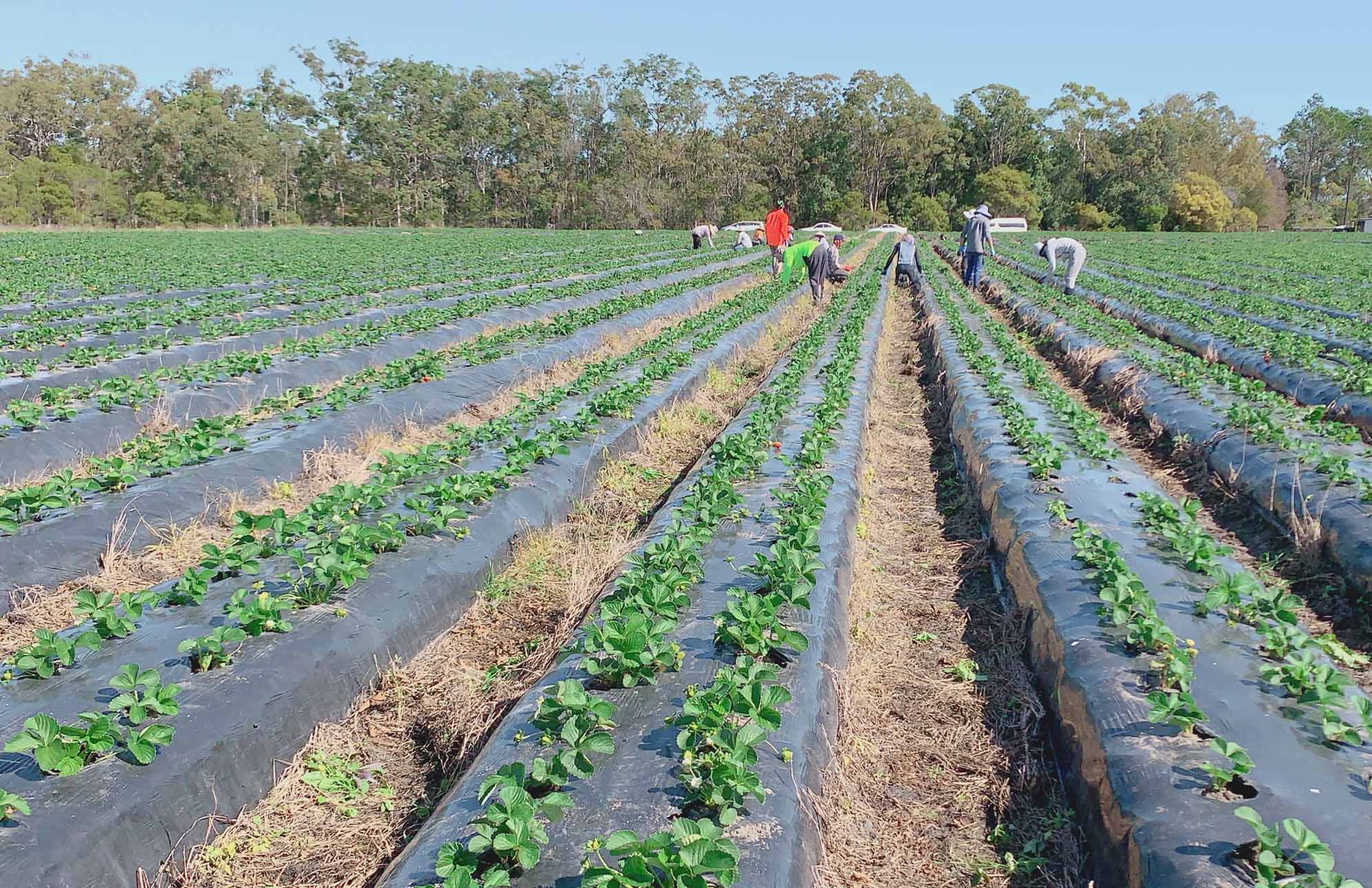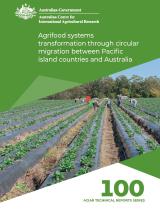Pacific agricultural workers in Australia a win-win for food security

Australia’s seasonal worker schemes boost food security in Australia and across the Pacific region, according to new research released by the Australian Government’s specialist agricultural research-for-development agency.
The report highlights the crucial role Pacific workers play in Australia’s agricultural industries and how the Seasonal Worker Programme (SWP), and subsequent changes to it, will be vital to the socio-economic recovery of the Pacific region from the COVID-19 pandemic.
Published today by ACIAR, the report also identified opportunities to enhance the knowledge and skills Pacific workers gain during their time in Australia.
Nearly 19,000 Pacific and Timorese workers have filled critical workforce gaps in Australia during the pandemic, with many workers acquiring new knowledge and skills that they take back home.
ACIAR Chief Executive Officer, Professor Andrew Campbell, said the report furthers understanding of the international labour mobility benefits beyond just economics metrics.
‘The SWP has allowed workers and employers to build trusting relationships with each other and enabled learning and sharing opportunities between workers and employers,’ said Prof Campbell.
‘This learning goes beyond simple farming skills and has included a broader sense of understanding each other’s cultures, priorities and needs in both Australia and Pacific countries.’
Prof Campbell said the transfer of knowledge represented a significant opportunity to add value to international labour mobility and added that the report will help ACIAR and other organisations involved in labour mobility to guide future investment.
The report’s lead author, Dr Federico Davila from the Institute for Sustainable Futures at the University of Technology Sydney, said current skill and knowledge transfer was only occurring incidentally and represented a valuable opportunity for the SWP, and subsequent programs, to contribute to the Pacific’s agricultural capacity.
‘The study reveals a range of agricultural knowledge and food value chain skills are acquired and applied by SWP workers, both in Australia and on their return to Pacific island countries, through their participation in the SWP,’ said Dr Davila.
‘Much of this agricultural knowledge and skills acquisition was unplanned and incidental, occurring through workers’ everyday interactions and relationships with Australian employers and other workers, and practical on-farm experience.
‘The vast majority of SWP workers expressed a strong appetite for learning more agricultural knowledge and skills through their participation in the SWP,’ said Dr Davila.
‘We found multiple untapped opportunities for agricultural knowledge exchange as identified from interviews with both SWP workers and employers.’
The researchers interviewed 63 seasonal Pacific workers and 4 Australian approved employers in Queensland to understand the barriers and opportunities for knowledge transfer.
Conducted in July 2021, the report further supports the Australian Government’s recent announcement to merge the SWP and the Pacific Labour Scheme (PLS) into a new program —The Pacific Australia Labour Mobility (PALM) scheme.
‘One of the key recommendations in our report is for a more formalised approach to training, professional development and knowledge transfer, so it’s encouraging to see that the new PALM initiative has a designated training budget,’ said Dr Davila.
Dr Davila added that Pacific labour mobility programs will become increasingly important for the socioeconomic recovery of the Pacific from the impacts of the pandemic.
‘The COVID-19 pandemic has dramatically reduced the number of tourists across the Pacific and increased unemployment and internal migration from urban to rural areas. As COVID-19 continues to impact Pacific economies, labour mobility policies can be shaped to become an important driver of recovery for the region.’
The new report is the latest in a series of research initiatives commissioned by ACIAR in response to the impact COVID-19 is having on food systems across the Indo-Pacific.
You can download the new report, Agrifood systems transformation through circular migration between Pacific island countries and Australia, via the ACIAR website.



